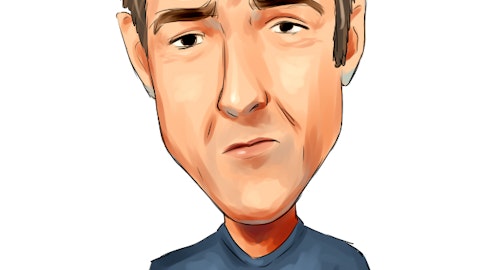
In its second-quarter earnings report, Zynga Inc (NASDAQ:ZNGA) dashed the hopes of a new revenue stream from real-money online gambling. It won’t pursue an online casino license. The problem is that online gambling was supposed to be Zynga’s chance at redemption. Without it, the future is even more bleak.
Where’s the growth?
Now that Zynga Inc (NASDAQ:ZNGA) has revealed that it won’t pursue a future in the real-money gambling arena, where will growth stem from? Online gambling was looked to as a saving grace and a gateway to greater profits that would lift the stock out of the doldrums even as U.S. states begin opening the online markets to casinos and possibly other gaming businesses, like Zynga. But the online-gambling ship seems to have sailed, taking with it the promise of Zynga tapping into a market that’s projected to generate hundreds of millions of dollars in revenue if not more each year.
Meanwhile, Zynga Inc (NASDAQ:ZNGA) isn’t abandoning its real-money gambling business in the United Kingdom, and through its partnership with local gambling company Bwin.party, continues to explore the opportunities. Nonetheless, Zynga made it clear that its focus is on its core business, including free social casinos, which means that nothing much has changed. If anything, things have worsened.
The number of monthly average users fell by almost 40% in one year to 187 million. So without a future in the online-casino market and the number of users falling off a cliff, where’s the catalyst?
Meanwhile, sales in the forthcoming third quarter are expected to take a dip to a range of $175 million to $200 million, while on the bottom line Zynga Inc (NASDAQ:ZNGA) is expected to report a net loss of between $43 million and $14 million. The value isn’t there, at least right now, and it’s not worth betting on for the time being.
Tale of two gamers
Investors are betting on a future turnaround, one that chief executive Mattrick says will take hold over the next three months. Or perhaps, with a market cap of approximately $2.4 billion and an enterprise value of about $1.5 billion, Zynga Inc (NASDAQ:ZNGA) could become a takeover candidate.
It wouldn’t be that much of a stretch, considering that International Game Technology (NYSE:IGT) found value in social-gaming company Double Down Interactive and agreed to pay half-a-billion dollars for the company, and casino company Caesars Entertainment Corp (NASDAQ:CZR) acquired Playtika. But who would want Zynga Inc (NASDAQ:ZNGA) with its user-base on the decline? Worse, International Game Technology’s online poker game recently surpassed Zynga Poker as the top-grossing social casino game on Facebook Inc (NASDAQ:FB), according to International Game Technology’s recent earnings call.
Slot-machine maker International Game Technology (NYSE:IGT) wagered a lot of money but it seems to have made a good bet. In the third quarter, Double Down saw its daily active users climb 25% to 1.7 million coupled with a 60% increase in the revenue per user to $0.40 per day. What’s more compelling is the explosive growth in mobile, where the number of mobile users increased by 40% over the previous quarter.
International Game Technology (NYSE:IGT) attributes 9% of its revenue increase, (to $579 million), to higher North American machine sales and social gaming. The company is benefiting from a replacement cycle, underway in the Canadian market, in addition to the heightened focus on casinos in light of the online-gambling renaissance. With a P/E of 16, and a recent 50% increase in its quarterly dividend, the stock seems to be a good deal at current levels.



